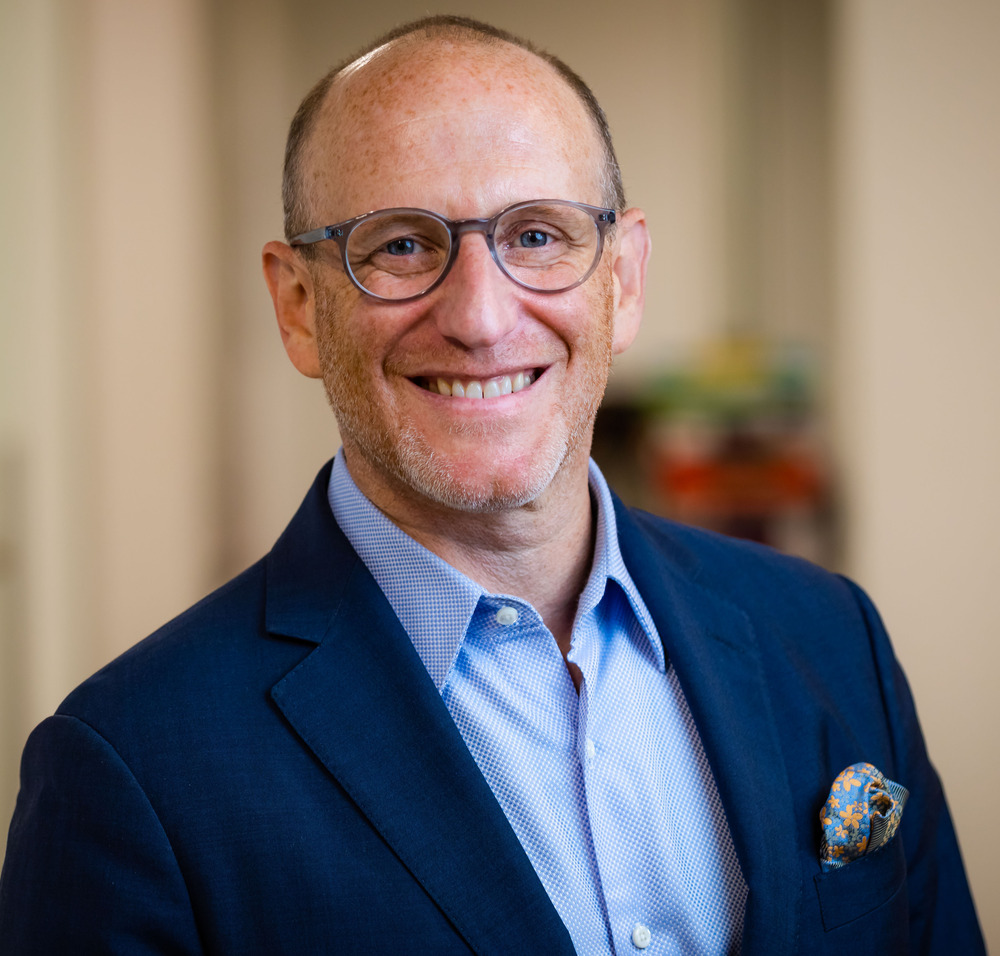Analysis: Is OpenAI impact washing by becoming a public benefit corporation?
What are OpenAI CEO Sam Altman’s motivations in restructuring his tech firm into a public benefit corporation? Amendments to the law in the US state of Delaware might give a clue on whether Altman is looking for social impact or profit maximisation.
OpenAI’s plans to restructure into a public benefit corporation could shield CEO Sam Altman from social and environmental accountability by taking advantage of amendments to its legal structure in one state of the US, say experts.
Since it was founded in 2015 OpenAI has been controlled by a non-profit board of directors with a mission to develop artificial intelligence in a way that benefits all humanity.
In 2019 the firm added a profit-making subsidiary funded by a US$1bn investment from Microsoft. In September, Reuters reported that OpenAI planned to restructure its core business into a for-profit benefit corporation that would no longer be controlled by its non-profit board. This would make the company more attractive to investors, although OpenAI emphasised at the time that the non-profit element would continue to exist and own a minority stake in the company.
In October OpenAI was valued at US$157bn and, as the developer of ChatGPT, is one of the most influential AI firms in the world. But experts have raised concerns that the company’s plans indicate that it might move away from its mission to develop AI to benefit all of humanity in favour of focusing on profits for investors.
OpenAI is currently registered in Delaware and its AI competitor Anthropic is registered as public benefit corporations in the state. Several experts have pointed out that the way that the public benefit corporation is structured in Delaware could be problematic.
Amendments to Delaware's public benefit corporation law introduced in 2020 could give OpenAI the kudos of being seen to be committed to balancing profit with purpose, while, in fact, allowing the company to dodge accountability. And more companies might follow suit.
How Delaware's legislation could enable impact washing
Public benefit corporations are traditional businesses, but with stricter obligations when it comes to purpose, accountability and transparency. Shareholders have the same rights as in a traditional corporate model, plus additional ones including the right to enforce the company’s social mission. Examples of public benefit corporations include Patagonia, Ben and Jerry’s, and Kickstarter. Public benefit corporations originated in the US but versions of the corporate model have since been adopted in countries across the world.
Melanie Rieback, co-founder of not-for-profit computer security consultancy Radically Open Security, co-founder of ‘post-growth’ startups incubator Nonprofit Ventures and a lecturer in ‘post growth entrepreneurship’, argues that amendments to Delaware’s public benefit corporation legislation potentially give CEOs a higher level of control over whether their company is delivering a public benefit which isn’t the intention of the legislation.
This is completely outside of the spirit of the public benefit corporation

Speaking to Pioneers Post, Rieback (pictured) said: “These changes to public benefit corporation law probably make it easier for CEOs to consolidate their hold on the company and to perform bad behaviour than if they were not a public benefit corporation, and this is completely outside of the spirit of the public benefit corporation. It’s protecting them from investors who want to call them to account for violating the ‘people and planet’ part of the triple bottom line.”
Delaware is the second smallest state in the US but is home to a disproportionate amount of businesses because of business-friendly legislation and a separate court system specifically for handling corporate cases. In 2023 Delaware said it was home to 60% of Fortune 500 companies, including Google parent company Alphabet and Amazon. In 2021 the state said more than 90% of US-based companies that went public that year were registered there.
The state introduced public benefit corporations in 2013 but amended the legislation in 2020. The 2020 amendments include the requirement that any potential plaintiff wanting to file a lawsuit to enforce the company’s public benefit obligations must own at least 2% of shares or, in the case of certain listed companies, shares with a value of at least US$2m.
If OpenAI’s planned restructure enables it to move away from its social mission while retaining the kudos of being seen as a public benefit corporation, it could set a precedent which could lead to more companies using Delaware’s amended law to disingenuously boost their reputation, or ‘impact wash’, warns Rieback.
She said: “People are paying attention. If this is an interesting way to get the benefits of being a not-for-profit, but then be able to change the governance structures to suddenly make the whole thing privately held, why wouldn’t every commercially minded person start doing this?”
Power-grab or increased liability?
Andrew Kassoy, co-founder and co-chair of B Lab, the nonprofit that oversees B Corp certification and helped write benefit corporation legislation, writes in the New York Times that Delaware law requires public benefit corporations registered there to report on their social impact only once every two years, using their own chosen measurements. Kassoy points out this is a much lower bar than most mainstream companies have to meet for annual audited financial reporting.

Kassoy (pictured) adds: “The future of humanity shouldn’t have to rely on unaccountable executives such as Sam Altman, OpenAI’s chief executive, to know if the company is living up to its stated principles.”
- Read our Pioneer Interview: Andrew Kassoy: The purist part of social enterprise 'plants a flag' for the rest of us
However, Luke Fletcher, partner at legal and advisory firm Bates Wells, told Pioneers Post one of the reasons some companies have historically been reluctant to become benefit corporations is due to a concern it could create new forms of liability for directors, given the relative novelty of the form and a lack of familiarity with it on the part of many legal advisers. He believes the Delaware amendments are designed to provide statutory clarification that there is no greater risk for directors of public benefit corporations than for other corporations and that the idea the form provides a safe harbour against shareholders and insulates management seems “misguided”.

Although Fletcher (pictured) suggests the legal structure will require OpenAI directors to make some attempt to mitigate the negative social and environmental impacts of AI, he added that commitment to mission will not be as strong as in the existing non-profit structure which the firm operates. He said: “Ultimately, OpenAI seems to be the perfect case study of how power works. When push comes to shove, the powers in the land can rewrite even the most hardwired mission-locked constitution.”
Meanwhile, the Financial Times (FT) reports that restructuring to a public benefit corporation will protect Altman from hostile takeovers. The FT said because public benefit corporations are obliged to balance the best interests of shareholders, a public benefit, and stakeholders, the structure creates a “safe harbour” from activists who might claim the company is not making enough money.
But American Bar Association analysis from 2023 contradicts the FT’s assessment, stating that: “publicly traded public benefit corporations may become prime acquisition or take-over targets because of their perceived lack of profit maximisation or for having social goals contrary to a bidder’s own social goals”.

Brian Tang (pictured), from HKU Faculty of Law's LITE Lab and a member of the Global Alliance of Impact Lawyers, pointed out to Pioneers Post that takeovers of public benefit corporations are still untested and this scenario would only apply if/when OpenAI becomes a publicly listed company. However, he added, given the many VCs participating in OpenAI’s recent funding round it would not be unreasonable to assume that an IPO was their ultimate desired outcome.
Pioneers Post invited OpenAI to respond to the questions raised in this article. It had not responded by the time of publication.
Is Altman steering OpenAI towards profit maximisation?
Tech ethicist and founder of Australian AI governance platform Ethē, James Gauci believes the move to distance OpenAI from its original mission has been inevitable since Sam Altman became CEO in 2019. He points to Altman’s career, in particular his role as partner at startup accelerator Y Combinator, which invested in companies like Airbnb and Dropbox, as a guide to the OpenAI CEO’s motivations.

Gauci (pictured) told Pioneers Post: “Sam Altman has promised us the world and handed us an atlas. He’s got a track record of over-hyping. He’s got a track record of developing hyper-capitalistic businesses. The trajectory of the organisation has been really clear since he took over in 2019 as CEO and this is just the latest game that Sam Altman is playing with everybody. He’s like every venture capitalist’s idol, he is of that community.”
The light on the hill that OpenAI previously represented is no longer lit. The lighthouse is empty. The lighthouse may have never existed
The ethical AI and machine learning community once saw OpenAI as a “paragon” of how the tech sector could deliver positive social impact, explained Gauci. But he points to the attempt to oust Altman from the company in 2023 and the recent departures of members of staff from key safety, innovation and quality assurance positions as evidence that the CEO is shifting the company towards a more “traditional Silicon Valley orientation” of profit maximisation.
“The light on the hill that OpenAI previously represented is no longer lit. The lighthouse is empty. The lighthouse may have never existed,” said Gauci.
Public benefit status could give OpenAI a defence against regulation
Reports about the planned restructure of OpenAI suggested Altman could receive a 7% stake in the company, which the CEO has denied. In October OpenAI raised US$6.6bn (£5bn) in a funding round that valued the business at $157bn. Reuters reported that the investment was contingent on the corporate restructure and the removal of an existing profit cap for investors.
In a statement announcing the investment, OpenAI said: “The new funding will allow us to double down on our leadership in frontier AI research, increase compute capacity, and continue building tools that help people solve hard problems.” The company is reportedly heading for a loss of US$5bn this year.
A company the size of OpenAI becoming a public benefit corporation will provide a stress test of the model and for the wider social enterprise movement, believes Rhodri Davies, founder and director of the Why Philanthropy Matters think tank.

Speaking to Pioneers Post, Davies (pictured) said: “What is their narrative about why their original structure of being set up with nonprofit oversight is sufficiently constraining that they need to do something else, and yet still constraining themselves to some extent by adopting a public benefit corporation model rather than just going fully for profit? If they were seen to be adopting the convenient mantle of a public benefit corporation in order to do what they wanted to do anyway, that could be difficult.”
OpenAI’s restructure and adoption of a governance structure emphasising social benefit potentially provides the firm, and Altman, with an ability to argue against wider regulation of the AI industry, said Davies.
My worry is... we’ll see the social division and and outright weaponisation of technology that we saw with social media
At the end of September California’s governor Gavin Newsom vetoed an AI regulation bill which would have required tech companies to test AI for harm to society. OpenAI and other major AI companies, including Google and Meta, opposed the bill. Previously, OpenAI lobbied to water down EU AI regulation.
Gauci said because of Silicon Valley’s prominence in the global tech sector, AI regulation in California does set a precedent for the rest of the world. While the AI companies are lobbying against regulation, Gauci believes if the technology is as powerful as the firms claim it is, then it must be heavily regulated.
He said: “If there’s no legal recourse for [AI companies] changing their mind, my worry is we’ll get the snake oil salesmanship of the dot com boom and the crypto boom all over again and we’ll see the social division and and outright weaponisation of technology that we saw with social media.”
Image: Sam Altman at the WEF 2024. Copyright World Economic Forum : Benedikt von Loebell
This article was updated on 11 November 2024. It previously mistakenly stated xAI was incorporated in Delaware, but the company is incorporated in Nevada.
|
|




